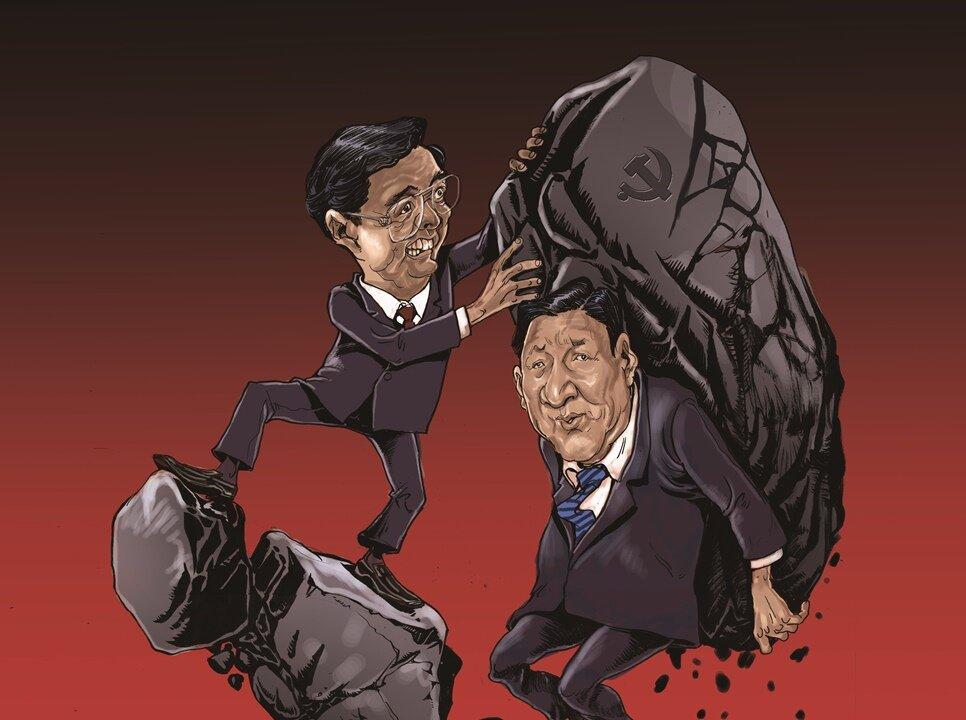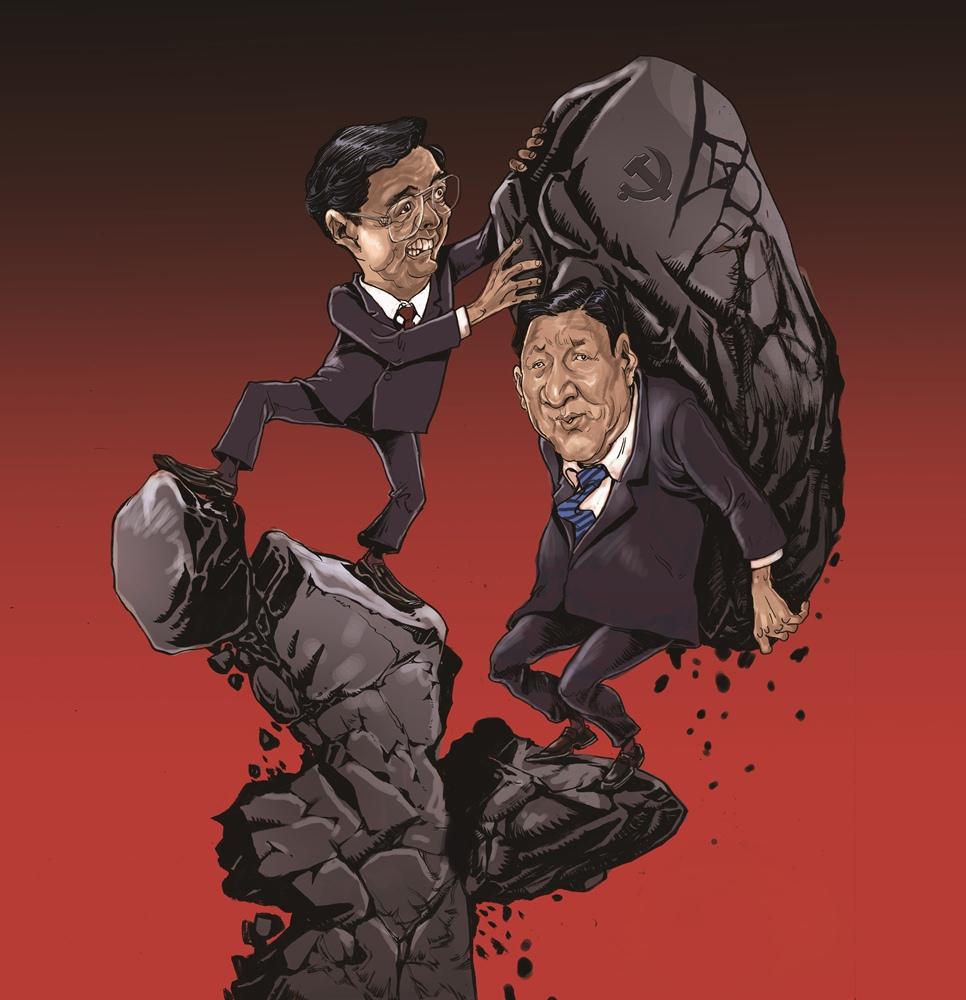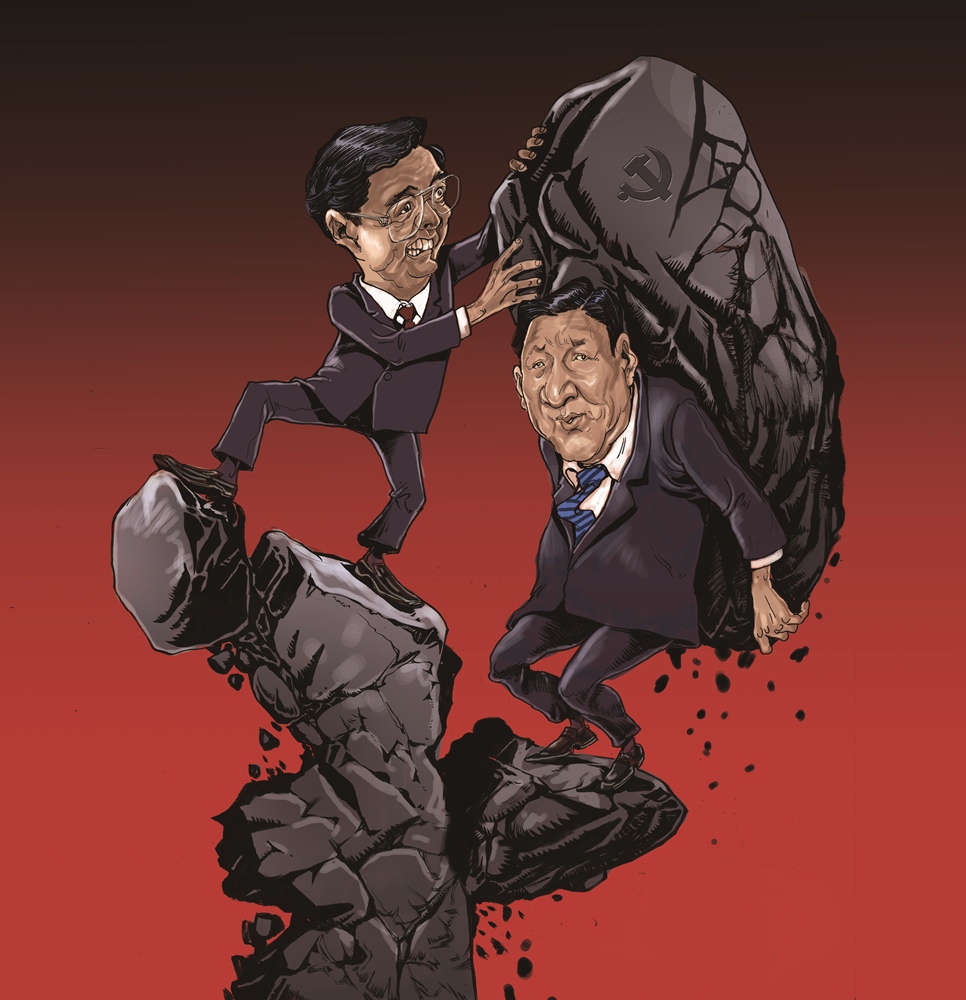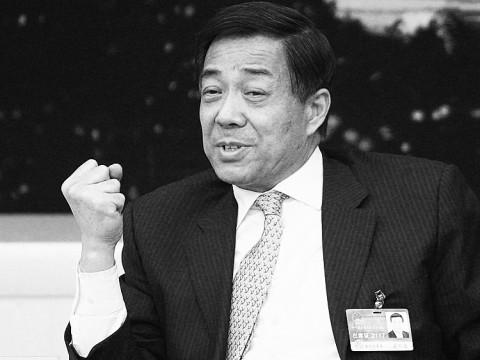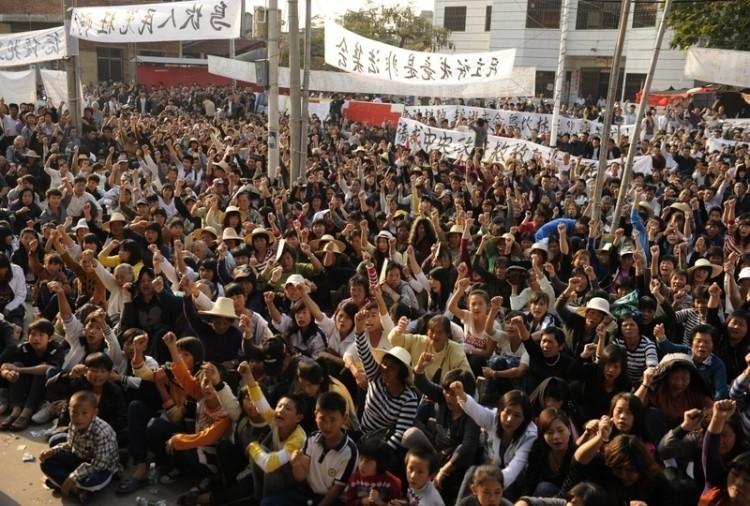The spectacle of Wang Lijun attempting to defect has fascinated people in and out of China because it opens a window on the power struggles threatening the Chinese Communist Party (CCP). However, in concentrating the gaze, the Wang affair may provide too narrow a focus for understanding how difficult the CCP’s situation is.
Wang Lijun was the police chief and first vice mayor of the province-level city of Chongqing in central-western China. After Wang’s boss, Bo Xilai, learned Wang had been targeted by central Party authorities for investigation, Bo threw Wang overboard, firing him.
Bo feared that Wang would cut a deal to save himself and reveal Bo’s own corruption. Bo also arrested 13 of Wang’s close associates, 3 of whom were dead within a week’s time.
Click this tag to read The Epoch Times’ collection of articles on the Chinese Regime in Crisis. Intra-CCP politics are a challenge to make sense of, even for veteran China watchers. Here we attempt to provide readers with the necessary context to understand the situation.
Wang, fearing Bo would assassinate him, fled on Feb. 6, traveling four hours by car west to Chengdu, entered the U.S. Consulate there, and asked for asylum. He brought with him a stack of documents and a story to tell: Bo was conspiring with Zhou Yongkang, the head of China’s police forces, to oust the next head of the CCP, vice-chair Xi Jinping, after he takes power at the 18th Party Congress later this year.
Since that conspiracy was revealed, speculation has circled around how the Bo-Zhou plot directed at Xi fits into the struggle for primacy between the faction led by former CCP head Jiang Zemin and the current CCP head Hu Jintao and Premier Wen Jiabao.
While the fight between Jiang and Hu may be the main battle inside the CCP, there are several factors and factions pulling the CCP in different directions.
Red Guards
Consider that the rule of the CCP is about to be turned over to a generation that came of age during the Cultural Revolution.
Recently, Beijing University professor Qian Liqun published an article in the Hong Kong newspaper Sing Pao Daily News titled “Worries About Red Guards Rising to Power.”
If Hu Jintao and Wen Jiaobao are the generation who were college students during the Cultural Revolution, then Xi Jinping is the generation of those who were 15 years old when they joined the Red Guard.
These people came out of high-ranking families but had been to the rural areas as educated youth and knew the suffering of the people. Many of them have been overseas, and some of them might push for reforms in the CCP, bringing some new characteristics to Chinese society.
“However, what can’t be ignored is the effect of the Cultural Revolution on these people,” Qian wrote. “Don’t forget that they were ‘Mao Zedong’s Red Guards.’ The influence of Mao on them can’t be ignored. In some sense, old Red Guards might become a ’small Mao Zedong.’
“In my view, we must be most alert to the cruel Cultural Revolution mentality of achieving the goal ’through whatever means necessary.' It’s very hard to have another overpowering leader like Mao Zedong or Deng Xiaoping today.
“There are many divisions among the old Red Guards. How they can work together will be an important issue during Xi Jinping’s time. If things turn bad, there might be infighting, or everyone going separate ways,” Qian wrote.
Bo Xilai is a former Red Guard, although he first joined at 17, not 15. Clearly Mao’s example made a deep impression on Bo, who is reported to have said that he will lead China into the future. But Bo is not the only one who may have his eyes on power.
Continued on the next page: Military Politics
Military Politics
Qian Liqun’s article discusses Air Force Lt. Gen. Liu Yazhou, who is also the Air Force deputy political commissar and the son-in-law of former President Li Xiannian. Liu is the representative of the military’s young turks.
Like the princelings—the sons of the founding generation of the CCP—who hold key positions of power, Liu’s goal is to “ensure my father’s rule lasts generation after generation” and to enhance “the ruling position of our party.”
What makes Liu Yazhou different from the princelings is that he is by nature a militarist. What’s most dangerous is that he supports the military’s intervention in politics.
In Liu Yazhou’s eyes, “China’s hope is in the Party. The Party’s hope is in the Central [Military] Commission. The Central Commission’s hope is from the higher ups,” but the real elites “are mostly in the military.” In his judgment, in less civilized countries, “the military is the force behind revolutions.”
Click this tag to read The Epoch Times’ collection of articles on the Chinese Regime in Crisis. Intra-CCP politics are a challenge to make sense of, even for veteran China watchers. Here we attempt to provide readers with the necessary context to understand the situation.
Many people worry that if the civilians can’t push for democracy, if officials in the Party can’t push for revolution, and if the military has the strongest voice, then China might turn into a military dictatorship. “This is the worst thing that can happen to prospects for democracy in China,” Qian writes.
And China may be ripe for military rule, as the young scholar and writer Wang Yi has pointed out.
“China is the country with the most prevalent military publications, which every male high school student reads,” Wang wrote. “China does not limit children, and organizes children to watch war movies.”
‘New Democracy’
Liu Yuan is another general with big ideas. The son of former Chinese President Liu Shaoqi, Liu Yuan has opposed corruption in the military and on many occasions has called for “new democracy”—a democracy not based on Western models but developed indigenously, based on Chinese experience.
Liu Yuan’s chief of staff, Zhang Musheng, wrote a book titled “Changing Our Cultural Historical Perspective.” At an April 24, 2011, press conference for the book, Zhang argued that the aim of returning to new democracy is to “reshape the legitimacy” of the CCP’s rule.
According to Zhang, new democracy contains three main points: The first is the leadership of the Communist Party—the Party will take absolute leadership over reform. The second point involves “returning the center to workers and farmers.” The Party can’t allow farmers and workers to be vulnerable groups, which is the key to reshaping the Party’s legitimacy. The third point is to allow capitalism to develop, while controlling the capitalist class.
The remarks at this press conference were understood to be a declaration by the princelings centered around Liu Yuan of the new ruling policy they propose. Liu Yuan and a few generals attended the press conference.
Zhang Musheng repeatedly stressed that that “our country has been lead into a serious political and social crisis by some weak, useless, and inhuman leaders.” “The next generation of top leaders will not allow the current situation to continue.” The future leaders “will use the highest political intellect to resolve issues they might face.”
Zhang said, “There will be a batch of next-generation leaders.” Liu Yuan is one such leader, according to Zhang.
A different take on future leadership of the CCP emerged out of the February, 2011, reunion of the “Yan‘an children.” Yan’an was the endpoint of Mao’s Long March, the site of subsequent bitter purges, and is considered by members of the CCP as the birthplace of the communist revolution in China.
Many princelings discussed and made a book of “our suggestions for the 18th National Congress” centered on building “democracy within the party.” The most striking suggestion they made was to add 20 percent “directly elected” members into the Central Committee, Politburo, and Politburo Standing Committee.
CCP leaders have lost their authority, and Bo Xilai is not the only one looking to remake the Party according to his ideas. The future of mainland Chinese politics looks to be chaotic.
Read the original Chinese article.
